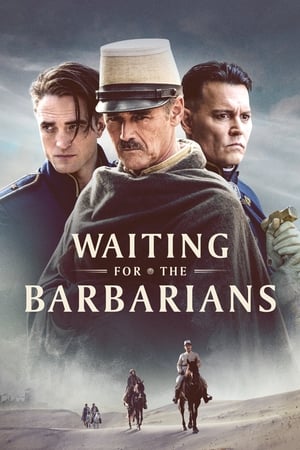
Waiting for the Barbarians
In Waiting for the Barbarians' Colonel Joll, Johnny Depp has crafted a great movie villain. I would describe him as either a colonial Darth Vader or a proto-Nazi – and concerning the latter, the character is a textbook illustration of Hannah Arendt's 'banality of evil;' perfectly circumspect, not a single hair out of place, not a single wasted motion. Depp plays the Colonel inwardly; his eyes invariably covered by round dark glasses, his face an inscrutable waxen death mask, his demeanor cold and calculating – of Captain Jack Sparrow's drunken buffoonery and shameful overacting not the slightest trace remains. Joll is, for better or for worse, the black heart and rotten soul of this film. It is said that a hero is only as good as his villain, and that's where the movie falls short. Mark Rylance's Magistrate is hopelessly meek, which makes sense seeing as how he will turn out to be a Christ-like figure; the problem is that, while he may or may not be able to carry a cross, he simply isn't fit, try as Rylance might, to carry a feature-length film. Now, Depp can't be in every scene – and he shouldn't, either; I strongly believe that to make a villain truly effective, the 'less is more' approach is the way to go. Director Ciro Guerra and screenwriter J.M. Coetzee (on whose novel the movie is based), however, put the cart in front of the horse; they introduce the film's most interesting character right off the bat, they place him front and center for a good half hour, and then they bench him for the central portion of the story. This won't do; you don't have Jaws jumping out of the water like Shamu in Sea World in the first scene. With Joll gone, the movie flatlines. Rylance's performance is by no means bad, but the only thing that hurts the Magistrate more than the comparison with Joll is the latter's absence, which turns the film's previously gained momentum into pure inertia. It's only when Depp returns, about an hour later, that the movie is shocked (as are we; ironically, the Colonel is the only barbarian here) back to life. In his final appearance, Joll's carefully constructed impassiveness comes crumbling down; not superficially, mind you, but it takes Depp a single solitary look to tell an entire, unseen story; one that is, perhaps, much more engaging than the one we have actually watched.
